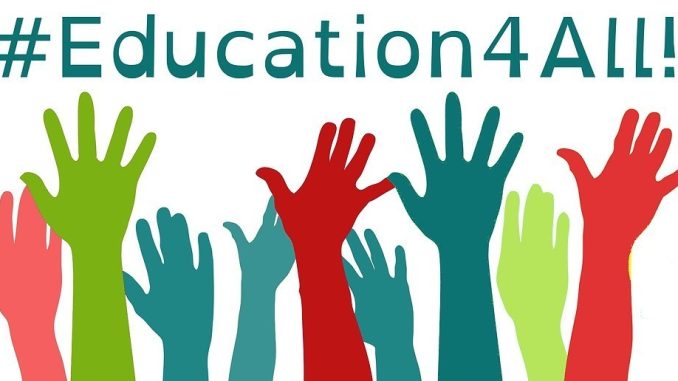
Education is not merely a privilege; it is a fundamental human right and a powerful engine for individual and societal progress. Yet, despite widespread recognition of its importance, access to quality education remains profoundly uneven across the globe, and even within highly developed nations like Germany. Making education truly accessible for all requires a multifaceted and sustained effort, addressing not only financial and physical barriers but also systemic inequities, cultural biases, and pedagogical limitations. It is about creating an inclusive ecosystem where every individual, regardless of their background, ability, or circumstance, has the opportunity to learn, grow, and fulfill their potential.
One of the most critical aspects of ensuring educational accessibility is the **dismantling of financial barriers**. For many, the cost of tuition, textbooks, transportation, and living expenses presents an insurmountable hurdle to pursuing education beyond compulsory schooling. Governments and institutions must commit to robust funding models that include scholarships, grants, and affordable loan programs, particularly for students from low-socioeconomic backgrounds. In Germany, while public universities largely do not charge tuition fees for domestic and EU students, indirect costs and living expenses can still pose significant challenges, particularly for students from less privileged families or those with migration backgrounds. Expanding financial aid, alongside support for childcare and housing, can significantly open doors that were previously closed, enabling talented individuals to access higher education and vocational training regardless of their economic standing.
Beyond financial considerations, **physical and digital accessibility** are paramount. For individuals with disabilities, ensuring that school buildings, classrooms, and learning materials are physically accessible is a non-negotiable imperative. This includes ramps, elevators, accessible restrooms, and appropriately designed furniture. Furthermore, in an increasingly digital world, the digital divide poses a significant barrier. Not all students have reliable access to high-speed internet, personal computing devices, or the digital literacy skills necessary to navigate online learning environments. As evidenced by recent reports in Germany, disparities in AI usage and digital infrastructure still exist, particularly between urban and rural areas and across different educational backgrounds. Innovative solutions involve providing subsidized internet access, lending programs for devices, and comprehensive digital literacy training for both students and families. Moreover, all digital learning platforms and content must be designed with universal accessibility in mind, incorporating features like screen readers, captioning, and adjustable font sizes to cater to diverse needs.
True accessibility also demands a profound commitment to **inclusive pedagogy and diverse curricula**. Education systems must move away from a “one-size-fits-all” model towards approaches that recognize and celebrate the diverse learning styles, cultural backgrounds, and individual needs of all students. This requires training educators in inclusive teaching methodologies, equipping them with strategies to differentiate instruction, manage diverse classrooms, and provide individualized support. Germany has been taking steps in this direction, with legal frameworks like the UN Convention on the Rights of Persons with Disabilities mandating inclusive education and teacher training programs now including modules on heterogeneity and inclusion. Curricula should also be culturally responsive, reflecting the diverse experiences and histories of students, rather than solely focusing on a dominant narrative. This helps students see themselves reflected in their learning, making education more relevant and engaging, and fostering a sense of belonging.
Furthermore, addressing **socioeconomic and cultural barriers** requires systemic change beyond the classroom. Factors like parental education levels, language barriers for immigrant families, and ingrained societal biases can profoundly impact a child’s educational trajectory. Early childhood education programs, accessible to all, are crucial for laying a strong foundation in language and cognitive skills. Outreach programs that engage parents, provide language support, and build bridges between schools and diverse communities can help mitigate these disparities. In Germany, research has highlighted the strong influence of family background on educational chances, with children from lower socio-economic statuses often facing significant disadvantages. Addressing these deeper societal inequalities through integrated community services, family support programs, and intercultural initiatives is essential for creating truly equitable educational opportunities.
Finally, making education accessible for all necessitates a **culture of empathy, support, and continuous adaptation** within educational institutions. This means fostering environments where students feel safe to ask for help, where mental health support is readily available and destigmatized, and where every student’s unique journey is valued. It involves breaking down silos between different educational sectors – from early childhood to vocational training and higher education – to create seamless pathways for lifelong learning. Recognizing that accessibility is not a fixed state but an ongoing commitment to improvement, institutions must regularly evaluate their practices, gather feedback from diverse stakeholders, and be willing to adapt and innovate to meet evolving needs.
In conclusion, achieving truly accessible education for all is a complex yet imperative undertaking. It requires a comprehensive approach that addresses financial, physical, and digital barriers, embraces inclusive pedagogical practices, tackles socioeconomic and cultural disparities, and cultivates a supportive and adaptive learning environment. By committing to these principles, societies, including Germany with its commitment to inclusive education, can move closer to the ideal where every individual is empowered to access the knowledge and skills necessary to thrive, contributing to a more just, equitable, and prosperous future for all.